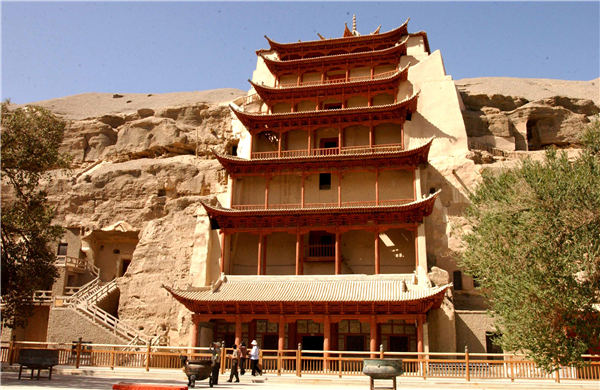 |
|
The Mogao Caves, a UNESCO World Heritage site in Gansu province, is a witness to the cultural exchanges on the Silk Road. [Photo by Xin Lei/China Daily] |
Better guidance keeps coming for grassroots staff overseeing heritage locations. Chinese versions of four UNESCO World Heritage resource manuals concerning disaster prevention and management issues were released last week after five years of preparations and translation.
Lu Ye, a project officer for culture at the UNESCO's Beijing office, says a national training program, which combines efforts of different departments under the central government and the country's top academic institutions, will be launched in 2016 to generate expertise in World Heritage under an established framework.
"The World Heritage Convention cannot cover each country's needs in detail," Lu Ye says.
"We expect relevant work to be done at a nation level."
One focus of the program will be sustainable tourism development at the sites.
The inclusion of the Silk Road as UNESCO World Cultural Heritage with Kazakhstan and Kyrgyzstan demands cross-border coordination by Chinese preservers.
And international teams have long participated in the protection of such sites.
Now Chinese heritage preservers have more responsibilities beyond the national borders.
"The world is not peaceful," says Shan Jixiang, director of the Palace Museum, adding that the protection of World Heritage is gaining more significance today.
"I've visited those admirable cultural heritage sites in Iraq and Syria. But they are being destroyed not during war, but due to sabotage.
"It's time for human beings to condemn such vicious deeds and protect heritage."
The Chinese have joined in cultural heritage restoration overseas in recent years. For example, they have played crucial roles in restoration projects in Angkor Wat in Cambodia and Samarkand in Uzbekistan.
"These efforts reflect our growing strength in heritage protection," says Lyu Zhou, a professor from the School of Architecture at Tsinghua University in Beijing. "We need a bigger international arena to play our roles.
"But it's important to focus on our own heritage issues to better promote our culture," he says.
Contact the writer at wangkaihao@chinadaily.com.cn